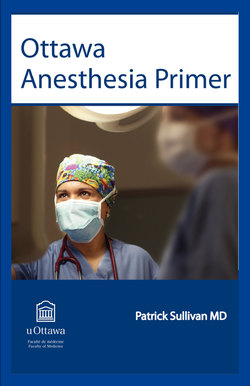Читать книгу Ottawa Anesthesia Primer - Patrick Sullivan - Страница 38
На сайте Литреса книга снята с продажи.
Reasons for prescribing a preoperative medication:
ОглавлениеPatient-related reasons:
1 Anxiolysis
2 Amnesia
3 Analgesia
4 Antisialagogue effect (to dry oral secretions)
5 Medications to decrease gastric acidity and gastric volume
Many patients scheduled for surgery experience a degree of apprehension. The psychological stress patients experience prior to surgery can be more detrimental than the actual physical insult of the surgical procedure. Preoperative anxiety may be caused by many factors. Some of the more common causes include:
1 The fear of relinquishing control to someone else while under general anesthesia.
2 The fear of experiencing pain postoperatively.
3 The inability to preserve their modesty and dignity during the operation.
4 The fear of separation from family and loved ones.
5 The fear of discovering a serious problem such as cancer.
6 The fear of surgical mutilation and an altered body image.
7 The fear of dying during the operation.
It is important to take time to answer your patients’ questions. If you are unable to answer their questions, reassure them that their questions are important to you, and while you may not know the answers, you will speak to the attending staff physician and provide them with answers. Perhaps the most important part of our preoperative visit is to convey a reassuring, honest and caring attitude.
II. Procedure-related reasons:
1 Gastric prophylaxis to minimize the risk of gastric aspiration during anesthesia.
2 Corticosteroid coverage in patients who are immunosuppressed (see Chapter 3).
3 Prevention of undesired reflexes arising during a procedure (e.g., vagal reflex during eye surgery).
4 Anticholinergic agents to decrease oral secretions and facilitate a planned awake tracheal intubation with a fiberoptic bronchoscope.
III. Coexisting Diseases:
1 To continue the patient’s own medications for coexisting diseases (e.g., beta-blockers, antihypertensive medications, nitrates, antiparkinsonian medications).
2 To optimize the patient’s status prior to the procedure (e.g., bronchodilators, nitroglycerine, beta-blockers, antibiotics).
Patients with significant coexisting diseases and those at the extremes of age may be more sensitive to anxiolytics, and the dose should be decreased accordingly. Additional medications can be given intravenously as needed when the patient arrives in the operating room.
